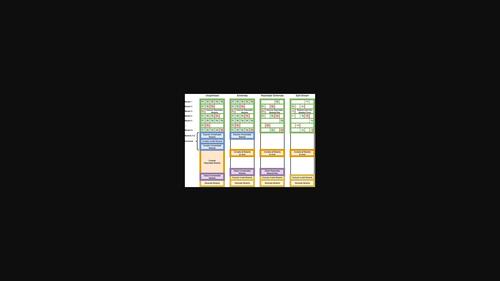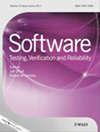使用Clang前端的突变测试优化
IF 1.2
4区 计算机科学
Q3 COMPUTER SCIENCE, SOFTWARE ENGINEERING
引用次数: 0
摘要
摘要突变测试是评估测试套件的故障检测能力的最新技术。不幸的是,一个完整的突变分析通常是非常昂贵的。例如,CppCheck项目在我们的桌面计算机上需要5.8分钟的构建时间和17秒的测试执行时间。对55,000个产生的突变进行非优化突变分析总共需要11.8天,其中4.3天用于(重新)编译项目。在本文中,我们提出了一项可行性研究,调查了如何基于Clang前端实施一些优化策略。这些优化策略允许消除编译和执行开销,以便支持C语言家族的高效突变测试。我们提供了一个概念验证工具,可以实现2到30之间的加速。我们对优化所带来的加速进行了详细的分析,详细阐述了经验教训,并指出了进一步改进的途径。本文章由计算机程序翻译,如有差异,请以英文原文为准。

Mutation testing optimisations using the Clang front‐end
Abstract Mutation testing is the state‐of‐the‐art technique for assessing the fault detection capacity of a test suite. Unfortunately, a full mutation analysis is often prohibitively expensive. The CppCheck project for instance, demands a build time of 5.8 min and a test execution time of 17 s on our desktop computer. An unoptimised mutation analysis, for 55,000 generated mutants took 11.8 days in total, of which 4.3 days is spent on (re)compiling the project. In this paper, we present a feasibility study, investigating how a number of optimisation strategies can be implemented based on the Clang front‐end. These optimisation strategies allow to eliminate the compilation and execution overhead in order to support efficient mutation testing for the C language family. We provide a proof‐of‐concept tool that achieves a speedup of between 2 and 30. We make a detailed analysis of the speedup induced by the optimisations, elaborate on the lessons learned and point out avenues for further improvements.
求助全文
通过发布文献求助,成功后即可免费获取论文全文。
去求助
来源期刊

Software Testing Verification & Reliability
工程技术-计算机:软件工程
CiteScore
3.70
自引率
0.00%
发文量
34
审稿时长
>12 weeks
期刊介绍:
The journal is the premier outlet for research results on the subjects of testing, verification and reliability. Readers will find useful research on issues pertaining to building better software and evaluating it.
The journal is unique in its emphasis on theoretical foundations and applications to real-world software development. The balance of theory, empirical work, and practical applications provide readers with better techniques for testing, verifying and improving the reliability of software.
The journal targets researchers, practitioners, educators and students that have a vested interest in results generated by high-quality testing, verification and reliability modeling and evaluation of software. Topics of special interest include, but are not limited to:
-New criteria for software testing and verification
-Application of existing software testing and verification techniques to new types of software, including web applications, web services, embedded software, aspect-oriented software, and software architectures
-Model based testing
-Formal verification techniques such as model-checking
-Comparison of testing and verification techniques
-Measurement of and metrics for testing, verification and reliability
-Industrial experience with cutting edge techniques
-Descriptions and evaluations of commercial and open-source software testing tools
-Reliability modeling, measurement and application
-Testing and verification of software security
-Automated test data generation
-Process issues and methods
-Non-functional testing
 求助内容:
求助内容: 应助结果提醒方式:
应助结果提醒方式:


